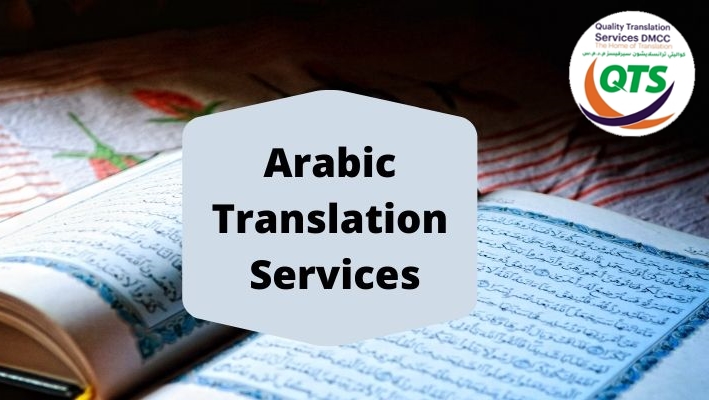In cross-border business a single sentence can make or break a deal. A study of 400 multinational firms, each employing more than one hundred thousand people, discovered that weak communication drains about USD 62.4 million per company every year. The figure is eye-opening when you picture the steady stream of contracts, medical reports, and license applications that move through the Gulf daily. Inside the United Arab Emirates Arabic holds legal primacy, and even a minor error in that language can stall a visa, freeze a bank transfer, or push a lawsuit off course. No wonder search for legal translation services in Dubai has become routine for organizations that want to stay out of trouble.
Why precise Arabic matters
English drafts may speed negotiations, yet judges and regulators always defer to the Arabic version. If the two texts conflict, the Arabic wording prevails. One poorly translated liability clause can shift millions of dirhams. For companies and individuals alike, linguistic accuracy is not merely polite; it is legal armour.
Nuances waiting to trip the untrained eye
Arabic is rich in features that rarely exist in English. A misplaced dot can swap one root for another and flip meaning. Dual forms, gender endings, and optional diacritics add complexity. Dialects introduce further twists. A term that sounds natural in Beirut might trigger confusion or laughter in Sharjah. Professional linguists decide when Modern Standard Arabic is enough and when a hint of Emirati usage will make the text feel at home. Get that judgement wrong and a respectful letter may read as stiff, or worse, disrespectful.
Machines help but cannot finish the job
Neural engines are excellent at spotting predictable word patterns, yet they still misread Arabic morphology and struggle with right-to-left layout. They often drop diacritics or ignore cultural context. Handing a merger agreement or a medical consent form to an algorithm alone is a gamble. Skilled human editors remain essential for nuance, tone, and compliance. A good Arabic translation agency near me will use software only as a starting point, never the last word.
Sectors where precision is mission-critical
Legal and compliance work stands at the top of the list. Courts will reject evidence that lacks certified Arabic or contains ambiguous terminology. Healthcare comes next: dosage instructions must be exact down to micrograms; any slip invites product recalls. Banks and fintech firms depend on Sharia-grounded language that passes Central Bank scrutiny. Real-estate developers submit tender files to the Land Department, where mismatched terms lead to costly revisions. Finally, e-commerce and software teams need flawless localization, so users trust checkout screens rather than bouncing to competitors. In every case professional accuracy pays for itself by avoiding penalties and lost revenue.
Anatomy of a reliable workflow
Strong results begin long before the first line is translated. Reputable providers start with a briefing that gathers glossaries, reference laws, and design templates. An in-country linguist produces the first draft, choosing vocabulary that satisfies both legal norms and reader expectations. A second linguist compares source and target line by line. Sector specialists, lawyers, doctors, engineers, double-check technical terms. Desktop publishers then confirm that the Arabic text fits forms, dashboards, or slide decks without breaking layout. Finally, a senior reviewer proofreads the document and applies a Ministry of Justice stamp if certification is required. This multi-layer process removes risk before any file reaches a government desk.
Picking the right partner
Licensing matters first. For sworn work look for Ministry-approved translators. In-country staff catch dialect shifts and rule changes faster than offshore teams. ISO 17100 or similar standards signal audited workflows. Strong securityencrypted portals and non-disclosure agreementsprotect sensitive data. Ask for case studies that tie accurate translation to concrete wins such as faster product approvals or lower legal fees. Businesses that follow this checklist often settle on established companies offering translation services in UAE because they can meet face-to-face yet still scale for global projects.
Lesson from the field
An Abu Dhabi tech start-up planned to raise funds through a convertible-note agreement drafted in English. A freelance translator missed a clause covering interest accrual. At filing, the notary spotted the discrepancy and postponed registration for two weeks. Investors grew uneasy, and the company paid extra legal fees. A seasoned agency later corrected the document and issued a certified Arabic version. The delay showed that a modest language fee upfront would have saved both time and credibility.
How technology and humans collaborate
Leading vendors store approved phrases in translation memories, so the same Arabic wording appears in every future contract, brochure, or user manual. Glossaries keep tone and terminology consistent across departments. Artificial-intelligence tools handle repetitive boilerplate, leaving expert linguists free to polish nuance. The hybrid model delivers speed without sacrificing precision, a mix valued by fast-moving Gulf industries.
Long-term gains from getting it right
Accurate Arabic files are assets. They help firms win tenders on the first submission, lower customer-support calls because manuals are clear, and breeze through audits without expensive rework. Each reliable project feeds the translation memory, reducing cost on the next release and protecting brand voice across the entire portfolio. A reputation for spotless Arabic also signals respect for local culture, something regulators and clients appreciate.
Final thoughts
Arabic sits at the heart of legal, medical, and commercial life in the Emirates. Precision in translation guards against lawsuits, compliance headaches, and lost revenue. Companies that invest in experienced translators gain smoother workflows and lasting trust from regulators and customers alike. Whether you need a birth certificate for immigration or a multi-volume engineering manual, choosing high-quality Arabic translation services in Dubai is more than a task on a checklist; it is strategic risk management. Vet your language partner today so every document you submit tomorrow speaks not only the right words but the right meaning.
Comment (1)
Comments are closed.



The Importance of Accuracy in Arabic Document Translation – Quality Translation Services DMCC
August 13, 2025[…] Source: The Importance of Accuracy in Arabic Document Translation […]